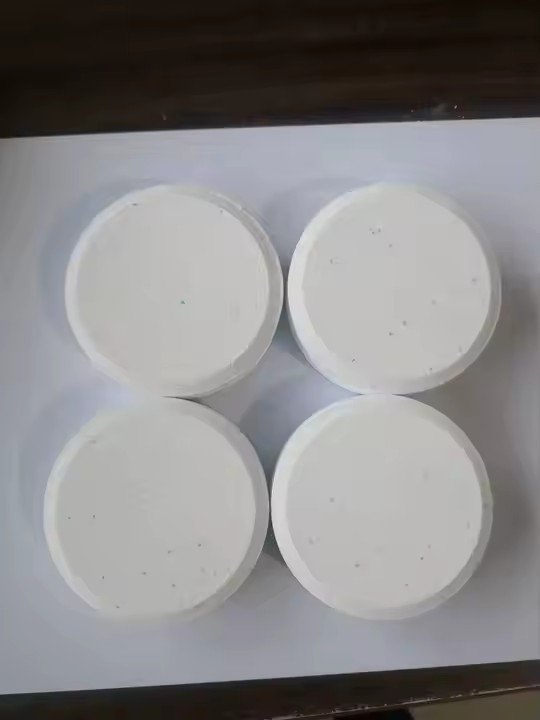When it comes to maintaining clean and safe water systems in industrial or agricultural plants, chlorine tablets play an essential role. These small but powerful tablets are widely used for water disinfection, helping to eliminate harmful bacteria, viruses, and algae. However, selecting the right chlorine tablets for your plant can be a daunting task, especially given the wide variety of products available on the market. This article will walk you through everything you need to know to choose the best chlorine tablets and ensure optimal water quality for your operations.

Understanding Chlorine Tablets
Chlorine tablets are compact, solid forms of chlorine designed for gradual dissolution in water. They are highly effective in maintaining water sanitation due to their controlled release of chlorine, ensuring consistent disinfection. Common applications of chlorine tablets include industrial cooling systems, agricultural irrigation, wastewater treatment, and swimming pools.
These tablets are typically made from compounds like trichloroisocyanuric acid (TCCA) or calcium hypochlorite, each offering unique properties. For instance, TCCA-based tablets provide a slow and steady release of chlorine, while calcium hypochlorite tablets dissolve faster, making them ideal for quick disinfection.
Key Factors to Consider When Choosing Chlorine Tablets
Choosing the best chlorine tablets for your plant requires a thorough understanding of your specific needs and the characteristics of available products. Here are the essential factors to consider:
1. Water System Requirements
The type of water system in your plant determines the ideal chlorine tablet. For instance:
Cooling towers require tablets that dissolve slowly for continuous disinfection.
Irrigation systems may benefit from tablets with faster dissolution rates to address immediate microbial concerns.
Consult with your system’s technical guidelines to identify the appropriate chlorine concentration and tablet type.
2. Tablet Composition
As mentioned, chlorine tablets are primarily composed of TCCA or calcium hypochlorite. Each has its pros and cons:
TCCA-based tablets: These are highly concentrated, with up to 90% available chlorine, making them suitable for long-term disinfection.
Calcium hypochlorite tablets: While slightly less concentrated (typically 65–75% chlorine), they work effectively for emergency or high-demand scenarios.
Understanding the chemical composition helps you select the best chlorine tablets for your operational needs.
3. Dissolution Rate
The dissolution rate of chlorine tablets affects their efficiency. Slow-dissolving tablets are ideal for sustained treatment, while fast-dissolving ones are better for immediate intervention. Choose based on the disinfection frequency and duration required for your plant.
4. Environmental Impact
Some chlorine tablets release residual chemicals into the water, which could impact the environment. Opt for eco-friendly products from a best chlorine tablets manufacturer known for sustainable practices.
5. Storage and Handling
Chlorine tablets must be stored properly to maintain their effectiveness and safety. Look for products that come with detailed storage instructions to prevent degradation and hazards.
Why Opt for the Best Chlorine Tablets Manufacturer?
The quality of chlorine tablets is only as good as the manufacturer behind them. A best chlorine tablets manufacturer ensures:
1. High Purity Levels:
Reliable manufacturers produce tablets with consistent chlorine content, ensuring predictable performance.
2. Compliance with Standards:
They adhere to international quality standards like ISO certifications and EPA guidelines, giving you peace of mind about product safety and efficacy.
3. Custom Solutions:
Leading manufacturers offer tailored products for specific industrial or agricultural needs.
4. Technical Support:
A top-tier manufacturer provides after-sales support, assisting with product usage and troubleshooting.
By choosing a best chlorine tablets manufacturer, you can ensure that the tablets you use are not only effective but also safe and compliant with regulations.
How to Evaluate Chlorine Tablet Brands
Here are steps to evaluate different brands and find the best chlorine tablets for your plant:
1. Check Product Labels
Look for key information such as chlorine concentration, active ingredients, and usage instructions. This will give you an idea of whether the product aligns with your plant’s needs.
2. Read Reviews and Testimonials
Online reviews and testimonials from other industries can provide valuable insights into the performance and reliability of specific products.
3. Request Samples
Many manufacturers offer samples for testing. This allows you to evaluate the dissolution rate, effectiveness, and compatibility of the tablets with your system before committing to a bulk purchase.
4. Compare Costs
While cost is an important factor, avoid compromising on quality for the sake of savings. Cheaper options may lead to inconsistent results or even damage your water systems.
Conclusion
Choosing the best chlorine tablets for your plant involves a careful assessment of your water system’s needs, the composition and performance of available tablets, and the reliability of the manufacturer. By selecting products from a best chlorine tablets manufacturer, you can ensure consistent water disinfection, regulatory compliance, and environmental responsibility. Remember to evaluate your options thoroughly and consult experts when in doubt to make an informed decision.
Investing in high-quality chlorine tablets is not just about maintaining clean water—it’s about safeguarding your plant’s operations and reputation for the long term.
